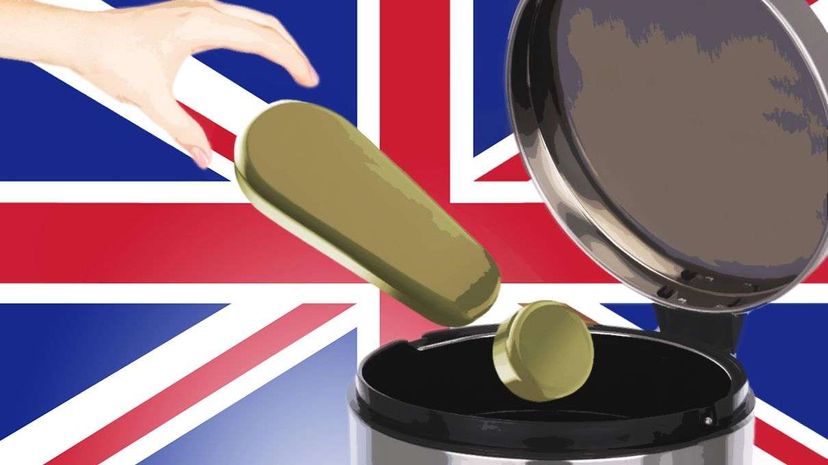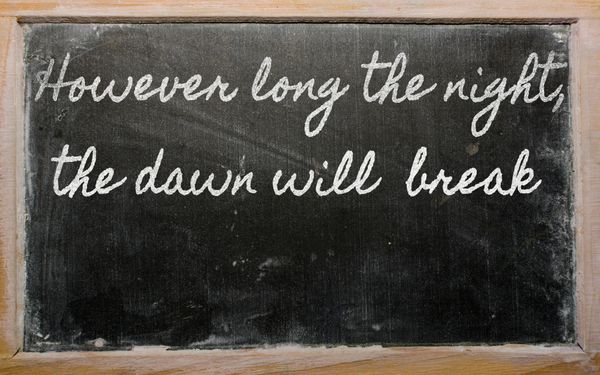
The mark, as the Brits call it, seems so innocent on its face. A vertical line. A simple dot.
Yet in England, the exclamation mark — what in America is known as an exclamation point — has become a scourge on the language. It is misused, overused and abused. It is, according to England's Department for Education, mostly unfit for 7-year-olds to use.
Advertisement
In England, the exclamation mark has been deemed practically punctuation non grata.
To be sure, the modest (on its face) exclamation point is not all that well-considered in America, either. Grammarians in the U.S. often look upon the mark much like the English do. Which is to say much like the English look upon the Americans.
"I think to discourage the overuse of the exclamation point is something to be commended," says Jordan Penn, taking the high road. Penn, a California investment firm executive, created The Punctuation Guide, a simple, almost elegant website dedicated to the wonders of periods (they call them "full stops" in the United Kingdom), semicolons, brackets and, yes, exclamation points. "I just wonder if the way they're doing it, I wonder if that's really the most effective way," he adds.
Mignon Fogarty agrees. Known online as the Grammar Girl, Fogarty is generally more agreeable to the exclamation point than many. She will, in fact, defend its use to the English.
“The rule that they're proposing just isn't a real rule,” she says. “When you force children to learn things that aren't actually rules, some subset of those children will actually carry that with them for the rest of their lives.”
England's DfE told teachers last month that, in testing primary school students — elementary school kids, to Americans — credit for the proper use of the exclamation mark can be given only when a sentence begins with the words "How" or "What."
So, in the bureaucrats' example, "What big teeth you have, Grandma!" is correct.
"How beautiful Cinderella looks in that dress!" Correct.
"Watch out for that falling piano!" Incorrect.
"That's a ridiculous rule!" Incorrect.
"My guess is, when putting together a standardized test, it's always easier to have strict rules because it makes grading easier," Fogarty says.
Education officials "clarified" things a little on March 8.
"The use of an exclamation mark," the Standards & Testing Agency says in its clarification (the agency clearly has no problems with ampersands), "does not change a sentence into an exclamation." (The agency is one of three that falls under the Department of Education.)
Whatever the backtracking now, the hue and cry has begun, even among the oft-stoic Brits. "It is nonsense of the highest degree," John Sutherland, emeritus Lord Northcliffe professor of modern English literature at University College London, told The Sunday Times.
In America, though, we get it. Anyone who has received a text or an email has seen the wild proliferation of the once rarely used exclamation point. U.S. voters, in perhaps an especially unfortunate example, have had to endure it even in their presidential politics.
"To me, it's the equivalent of someone yelling or screaming when what they have to say really just doesn't warrant that level of enthusiasm," says Penn. "I would liken it to listening to a politician deliver a very, sort of generic canned line on the campaign trail, but say it at the top of their lungs. That, to me, is what's irritating."
Still, there are times when the exclamation point is just fine to use, Grammar Girl says.
"There are a wide variety of sentences that could be exclamatory," Fogarty says. "It's an exclamation. An interjection. 'Hey!' 'Ouch!' 'Look out!' Those are legitimate types of sentences."
What is not cool, and generally not acceptable on either side of the ocean, is the use of exclamation points — plural. It's an exclamation point. One should do it.
You don't have to go overboard!!!!!!
Certainly, even multiple points are acceptable in less formal methods of communication. A text to a friend — "Let's go!!!" — is OK. In an email or letter to your boss ... probably not so much.
That, of course, is the big danger of exclamation points, and perhaps why the English want to restrict them. They can be insidious. They can slip into places where they don't belong.
"It seems as though the exclamation point has taken on the meaning of sincerity," Fogarty says. "'Thanks!' seems more sincere than 'Thanks.'"
Which means that even those who should know better sometimes feel forced to join in.
"I find myself using exclamation points in email, for example, where I normally wouldn't use it," Penn says. "If the person I'm corresponding with uses it at the end to say something like, 'Thanks a lot!' or 'Have a good weekend!' I sort of feel obliged to do the same. Otherwise they're going to think I'm not all that friendly."
And that, as they say in America, might leave a mark.
Advertisement

